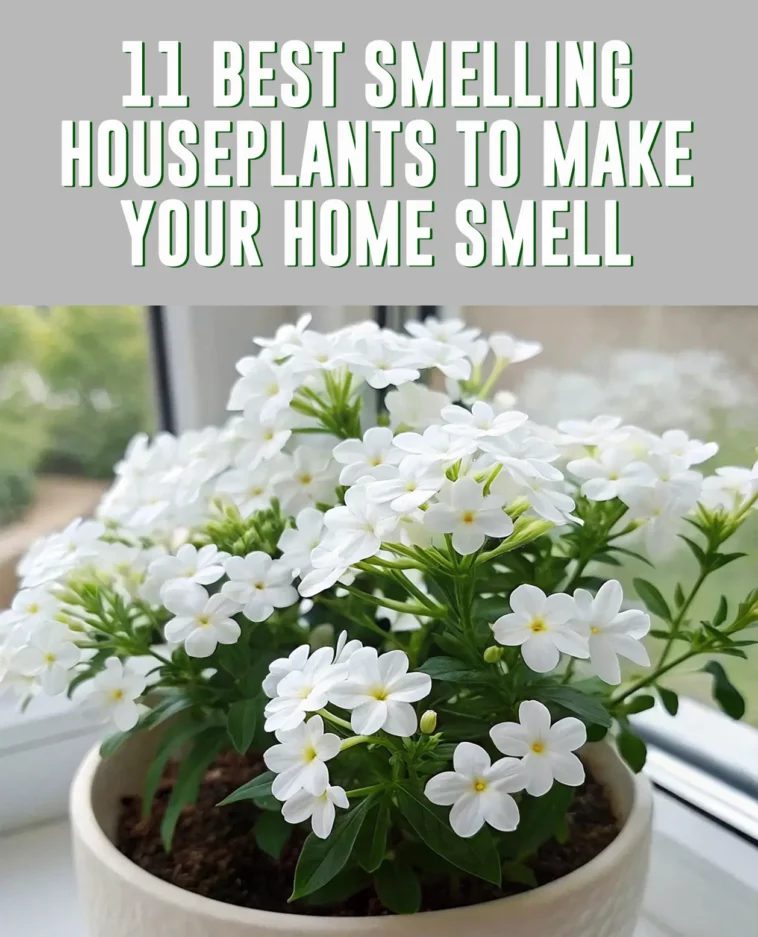Houseplants do more than just add visual appeal to your living spaces—many varieties release delightful fragrances that can transform your home’s atmosphere. These aromatic plants not only beautify your surroundings but fill them with natural scents that evoke memories, enhance moods, and create a welcoming environment.
Contents
Why Choose Fragrant Houseplants?
Beyond their pleasant aromas, fragrant houseplants offer multiple benefits. They improve air quality by filtering toxins and increasing humidity levels, particularly valuable in dry indoor environments. Their natural scents can provide therapeutic effects—reducing stress, promoting relaxation, and improving sleep quality. These plants also serve as natural air fresheners, eliminating the need for chemical alternatives.
Selecting the Perfect Scented Plant
When choosing fragrant houseplants, consider scent intensity, care requirements, and compatibility with your home environment. Some plants produce bold, room-filling fragrances, while others offer subtle, delicate scents. Select plants that match your aroma preferences and complement your home’s atmosphere. Also factor in each plant’s light, water, and temperature needs to ensure it thrives in your space.
Top Fragrant Houseplants
Jasmine: Renowned for its sweet, exotic fragrance that can permeate an entire room. Jasmine thrives in bright, indirect light with regular watering to maintain moist soil. Its intoxicating scent is popular in perfumes and aromatherapy for its calming properties.
Lavender: Celebrated for its soothing qualities, lavender features beautiful light purple blooms and silvery-green foliage. It prefers bright light and well-drained soil. Its fragrance is known to reduce anxiety and promote better sleep, making it ideal for bedrooms.
Gardenia: Prized for rich, floral scents and stunning white flowers. Gardenias need bright, indirect light and high humidity. Often associated with romance, they create a luxurious atmosphere in living spaces.
Eucalyptus: Known for its refreshing, invigorating aroma that can clear airways and rejuvenate the senses. Eucalyptus prefers bright light and well-drained soil. Its aromatic leaves work well in homemade potpourri or as natural air fresheners.
Citrus Plants: Lemon and orange trees offer zesty, uplifting fragrances that energize any space. These plants require ample sunlight and regular watering. Their clean, fresh scent works particularly well in kitchens and bathrooms.
Mint: An easy-growing herb with a cool, refreshing aroma. Mint thrives in bright, indirect light with regular watering. Its invigorating scent can enhance focus and concentration, and its leaves add flavor to cooking and beverages.
Rosemary: A versatile herb with a herbaceous, woody scent that both stimulates and grounds. Prefers bright light and well-drained soil. Rosemary’s aroma is known to enhance memory and concentration, making it excellent for home offices or study areas.
Orchids: Offering delicate, subtle fragrances that vary between species. These elegant plants need bright, indirect light and high humidity. Orchids add sophistication to any room while creating a peaceful atmosphere.
Hoya: Also called the wax plant, it produces star-shaped flower clusters with sweet, honey-like aromas. Thrives in bright, indirect light with minimal watering. Hoya’s unique scent and attractive foliage make it popular for indoor gardens.
Scented Geraniums: Available in various fragrances from rose and lemon to mint and spice. These plants prefer bright light and well-drained soil. Their leaves release scent when touched, making them interactive additions to any room.
Tea Rose Begonia: Features a soft, rosy fragrance reminiscent of traditional roses. Thrives in bright, indirect light with regular watering. Its delicate scent and attractive blooms enhance any indoor space.
Caring for Your Fragrant Plants
To help your fragrant houseplants thrive, provide appropriate light, water, and humidity levels. Monitor soil moisture regularly and avoid overwatering, which can cause root rot. Prune as needed to encourage healthy growth and remove dead or damaged leaves. Consider using natural fertilizers to promote blooming and enhance fragrance.
Transform Your Home with Natural Aromas
Incorporating fragrant houseplants into your home offers a natural, effective way to enhance your living environment. These plants provide visual beauty while filling your space with delightful scents that uplift your mood and promote wellbeing. With the right selection and proper care, you can enjoy the many benefits of fragrant houseplants and create a naturally aromatic home.




